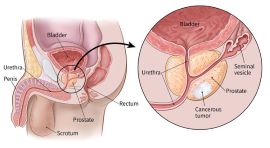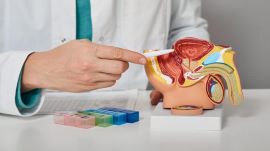Prostate – A Man’s Second Heart; Kegel Exercises For Potency Boost
Prostate health: the key factor of male sexuality
Whether infectious or inflammatory (prostatitis), benign tumor (BPH) or malignant (cancer) origin, prostatic pathologies can have a direct or indirect impact on reproductive and / or erotic sexuality. While various sexual functions can be altered, their impact varies greatly with age. Thus, the consequences on fertility due to ejaculation disorders are much more serious in young subjects (of childbearing age) than after 50 years.

Sexual disorders then come from an impairment in the quality of life caused by functional impairment of the prostate. This deterioration in quality of life is mainly caused by chronic pain that is permanent or caused by urination or ejaculation and by sleep disorders, favored by nocturnal awakenings. The severity of the symptoms then affects the quality of life and sexuality all the more.
HBP and male erectile function
Symptomatic BPH is currently emerging as a specific risk factor for sexual disorders. This risk is far from negligible, since symptomatic BPH affects more than half of men over 50 years old. These disorders were described as troublesome by a clear majority of men. These ejaculation disorders are responsible for a decrease in orgasmic sensation and pleasure. The presence of a decrease in erection is a factor favoring rapid ejaculation which is not, as was previously assumed, the preserve of younger men.
Regardless of the patient's age, the more severe the urinary disorders associated with BPH, the greater the decline in sexual activity, not only in the patient but also in his partner. Clearly, if the sexuality and quality of life of patients with symptomatic BPH deteriorate along with the severity of the disorders, the same deterioration (absence of sexual desire and overall dissatisfaction) is present in the partner. In addition, age is an aggravating factor in these sexual or urinary disorders (the older the person, the more severe these disorders).
Discussing sexual dysfunctions with an urologist
Do not hesitate to talk to your doctor, the sooner the better. In an attempt to reconcile the goal of treatment while preserving the patient's quality of life, the urologist should address the issue of sexuality with the patient and, if possible, his / her partner. The assessment of the patient's initial sexual “status” (sexual functions, environment, risk profile, specific requests and wishes of the patient) is an integral parameter for the choice of immediate treatment and for follow-up.

The experience of the sexual disorder and the patient's request will guide the medical management (by mutual agreement between the doctor and the patient). Nevertheless, clinical experience shows that sexuality is at the outset a relevant parameter but not a priority in the choice of treatment for a large majority of patients. On the other hand, once the prognosis of the disease has evolved favorably, sexual demand and expectations often come to the fore, especially as the man (and woman) is younger and the couple gets along. good.